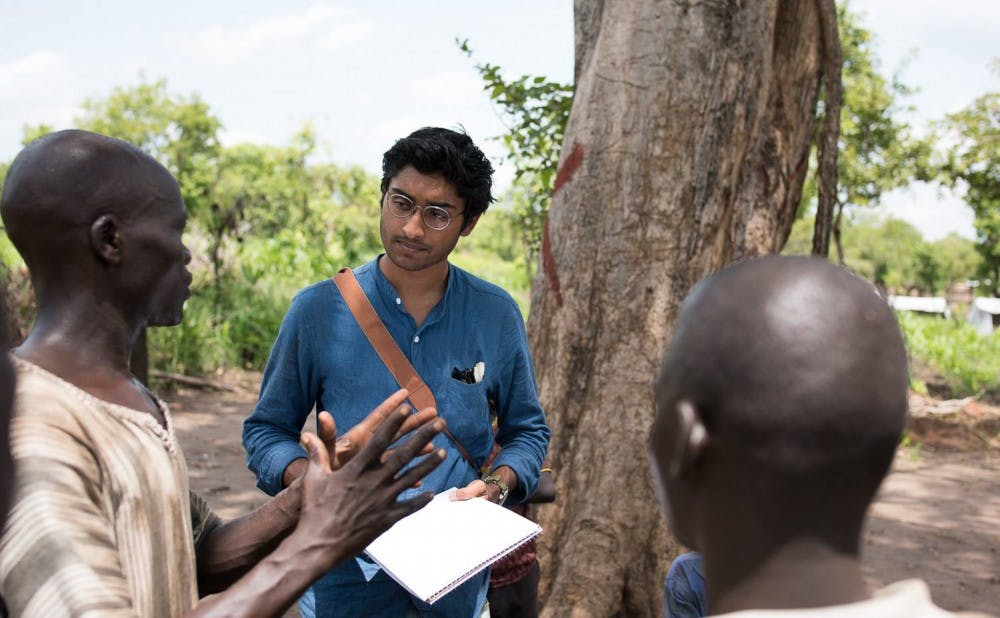While many of his peers are gearing up for job applications, one Duke student is already living his future dream.
Rajiv Golla, a senior majoring in political science and history, has been traveling throughout East Africa and covering the South Sudanese civil war for over six months as a freelance writer for media outlets such as Roads & Kingdoms and The Caravan. The war, which began in 2013, has been a continuous stream of guerrilla battles between the government and rebel forces.
“I was about 20 kilometers from the front, and most of my works were about how the war works from the ground level,” Golla said.
Golla noted that he has always been interested in African politics. He started to get deeply involved in research about two years ago, when he spent a whole summer learning about the Sudanese conflict and friended every South Sudanese person he could find on Facebook to make connections with the rebel forces.
Although there were no official avenues for him to explore the Sudanese conflict, Golla said that his persistence in emailing contacts and expressing his passion helped him achieve his goal.
“Duke has a lot of money to throw at projects like this,” Golla said. “We don’t have a big [African studies] department, but they always love to help.”
Stephen Smith, professor of practice in African and African American studies, served as a mentor to Golla and praised him for his contagious passion.
“He only wanted to know how he could get into contact with the rebel movement in South Sudan, how he could organize his trip to make it safe and productive,” Smith said. “I understood he would go there no matter what, and it was a waste of time to caution him or dissuade him, so I tried to be as helpful as I could.”
Golla said that he was sometimes affected by the anecdotes he heard during his experiences, adding that it was very easy to root for the rebels.
“The government does not know how to talk to journalists,” he said. “The rebels are very friendly, so it is very easy to get sucked into that. But it is also [important] to step back and see the human toll of it all. “
Golla noted that he was hesitant about suggesting a solution or plan of action to resolve the conflict, explaining that although the international community has the power to control these atrocities, he believed these conflicts were the product of “international meddling.” He added that the most popular tactic currently being considered is the international takeover of Sudan, but even that may not work.
“To give all the power to international players would undermine the local and domestic rationality of the conflict,” he said.
Golla is currently working on a book project that explores the role Indians are playing in shaping modern Africa. He has already done research in South Sudan and Mali and plans to visit 10 more countries in the next eight months, he added.
Smith said that he thinks Golla really grew through his work, explaining that the teaching about conflict, conflict analysis and journalism only comes into play once students start practicing what they have learned.
“Sometimes I feel that much of the subtler, refined, analytical approach doesn’t really matter as soon as people start practicing professionally the work as a journalist because in Golla’s writing, you could not necessarily trace any ‘Duke legacy,’” he said. “That says something about the complex nexus between what we do here and what is left of our thinking once you start doing things.”
Get The Chronicle straight to your inbox
Signup for our weekly newsletter. Cancel at any time.

